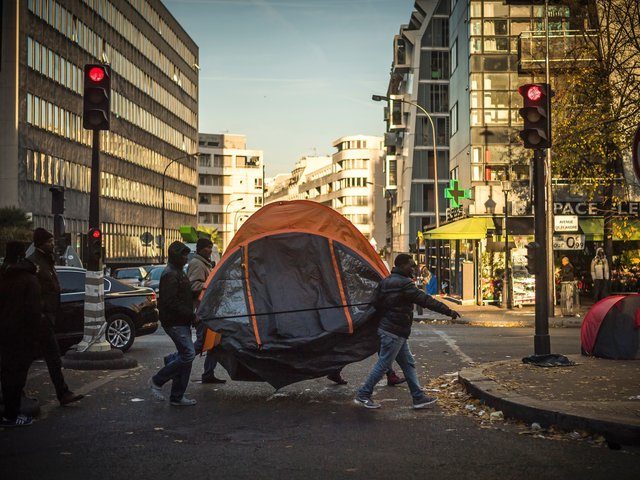PARIS (AP) — French President Emmanuel Macron’s government on Wednesday presented a bill to enforce tougher immigration rules, which human rights organizations criticize as repressive toward asylum-seekers.
The government says the bill, presented at a Cabinet meeting, aims at accelerating expulsion of people who don’t qualify for asylum. It also wants to provide better conditions for those allowed to stay in the country, such as offering more French classes and job training.
Interior minister Gerard Collomb said the plan is “balanced” and “is aligned with European procedures.”
The plan will reduce the consideration period for an application for asylum to a maximum of six months, down from about one year including appeal.
Human rights activists say the quicker process will make it more difficult for asylum-seekers to defend their rights.
The plan would also allow authorities to hold migrants who are staying illegally in the country in closed centers for up to 90 days instead of the current 45, in order to organize their deportation.
Under the bill, people illegally crossing borders of the EU travel-free zone will be fined 3,750 euros ($4,600).
France: Record 100,000 Asylum Applications in 2017 https://t.co/Cup8LJtqiq
— Breitbart London (@BreitbartLondon) January 9, 2018
Some organizations helping migrants, including the French Human Rights League, have called for street protests in Paris Wednesday to denounce “governmental policies that infringe on migrants’ freedoms.”
Some public agents in charge of asylum procedures were on strike Wednesday.
Cyrielle Taezin, an employee at the national court of asylum, said migrants won’t have enough time to prepare their request. “They have experienced trauma. They need psychological checks. They need time to express what they’ve gone through.”
Alain Esmery, an activist with the Human Rights League, noted that Macron called last month for humanity and firmness toward migrants. “The interior minister must be hard of hearing because he has heard ‘firmness, firmness,’” Esmery said.
Official figures show that more than 100,000 people applied for asylum in France in 2017, up 17 percent from the year before.
The largest number of asylum requests came from people from Albania, Afghanistan, Haiti and Sudan.
About 36 percent of applicants were granted refugee status.
The bill is to be debated in Parliament in April.

COMMENTS
Please let us know if you're having issues with commenting.